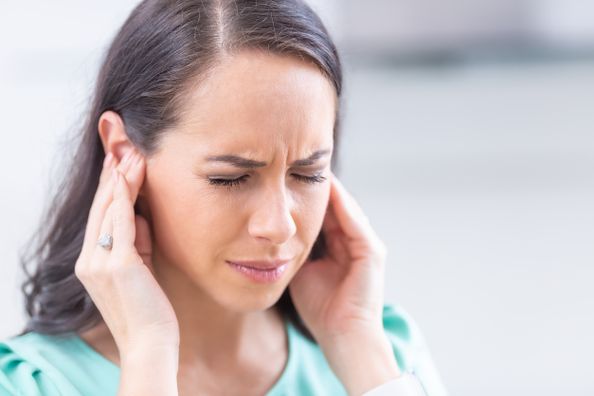Tinnitus is a symptom associated with many forms of hearing loss. It can also be a symptom of other health problems. Roughly 25 million Americans have experienced tinnitus. Some cases are so severe that it interferes with a person’s daily activities. People with severe cases of tinnitus may find it difficult to hear, work, or even sleep.
What causes tinnitus?
- Hearing loss. Doctors and scientists have discovered that people with different kinds of hearing loss also have tinnitus.
- Loud noise. Too much exposure to loud noise can cause noise-induced hearing loss and tinnitus.
- Medicine. More than 200 medicines can cause tinnitus. If you have tinnitus and you take medicine, ask your doctor or pharmacist whether your medicine could be involved.
Other health problems. Allergies, tumors, and problems in the heart and blood vessels, jaws, and neck can cause tinnitus.
What should I do if I have tinnitus?
The most important thing you can do is to go see your doctor. Your doctor can try to determine what is causing your tinnitus. He or she can check to see if it is related to blood pressure, kidney function, diet, or allergies. Your doctor can also determine whether your tinnitus is related to any medicine you are taking.
To learn more about what is causing your tinnitus, your doctor may refer you to an otolaryngologist (oh-toe-lair-in-GAH-luh-jist), an ear, nose, and throat doctor. He or she will examine your ears and your hearing to try to find out why you have tinnitus. Another hearing professional, an audiologist (aw-dee-AH-luh-jist), can measure your hearing. If you need a hearing aid, an audiologist can fit you with one that meets your needs.
How will hearing experts treat my tinnitus?
Although there is no cure for tinnitus, scientists and doctors have discovered several treatments that may give you some relief. Not every treatment works for everyone, so you may need to try several to find the ones that help.
Treatments can include:
- Hearing aids. Many people with tinnitus also have a hearing loss. Wearing a hearing aid makes it easier for some people to hear the sounds they need to hear by making them louder. The better you hear other people talking or the music you like, the less you notice your tinnitus.
- Maskers. Maskers are small electronic devices that use sound to make tinnitus less noticeable. Maskers do not make tinnitus go away, but they make the ringing or roaring seem softer. For some people, maskers hide their tinnitus so well that they can barely hear it. Some people sleep better when they use maskers. Listening to static at a low volume on the radio or using bedside maskers can help. These are devices you can put by your bed instead of behind your ear. They can help you ignore your tinnitus and fall asleep.
- Medicine or drug therapy. Some medicines may ease tinnitus. If your doctor prescribes medicine to treat your tinnitus, he or she can tell you whether the medicine has any side effects.
- Tinnitus retraining therapy. This treatment uses a combination of counseling and maskers. Otolaryngologists and audiologists help you learn how to deal with your tinnitus better. You may also use maskers to make your tinnitus less noticeable. After a while, some people learn how to avoid thinking about their tinnitus. It takes time for this treatment to work, but it can be very helpful.
- Counseling. People with tinnitus may become depressed. Talking with a counselor or people in tinnitus support groups may be helpful.
- Relaxing. Learning how to relax is very helpful if the noise in your ears frustrates you. Stress makes tinnitus seem worse. By relaxing, you have a chance to rest and better deal with the sound.
What can I do to help myself?
Think about things that will help you cope. Many people find listening to music very helpful. Focusing on music might help you forget about your tinnitus for a while. It can also help mask the sound. Other people like to listen to recorded nature sounds, like ocean waves, the wind, or even crickets.
Avoid anything that can make your tinnitus worse. This includes smoking, alcohol, and loud noise. If you are a construction worker, an airport worker, or a hunter, or if you are regularly exposed to loud noise at home or at work, wear ear plugs or special earmuffs to protect your hearing and keep your tinnitus from getting worse.
If it is hard for you to hear over your tinnitus, ask your friends and family to face you when they talk so you can see their faces. Seeing their expressions may help you understand them better. Ask people to speak louder, but not shout. Also, tell them they do not have to talk slowly, just more clearly.
Health Topics:







